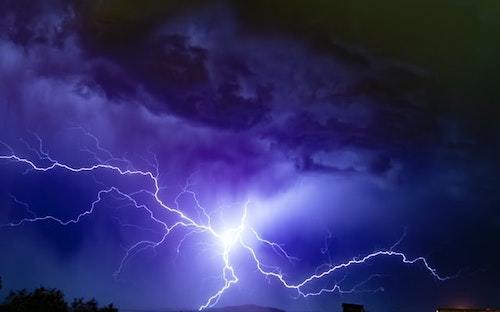The Flash Fiction Approach to Writer’s Block

There are about a thousand tricks to help push yourself to write, so what about using flash fiction? Nano guest Michael Mortenson shares how flash fiction has helped him and his work.
Halfway through draft two of my novel manuscript, I hit a wall. You know the one—thick bricks that scrape up hands, barbed wire across the top, and no holds for your trusty grappling hook. That’s where I was when I discovered flash fiction.
I had been warned by other writers that dipping toes into the pool of sparkly, new ideas halfway through a project was a decidedly bad idea. But between me and the wall, progress wasn’t happening. So, I thumbed my nose at warning and told myself that writing something was better than writing nothing. I started writing flash fiction.
Flash fiction is any fiction under 1000 words. It aims to deliver the same results as long-form fiction (character, setting, conflict, emotional payoff, etc.), but in a compact space. Since I was writing sci-fi, I figured that I would write flash sci-fi and let some of the sparkly, new ideas breathe so they would stop crowding out my novel. However, a sense of foreboding lingered about the thought of letting new ideas run wild, so I set myself a limit. I would borrow from poetry and limit my stories to 17 syllables, haiku-style.
Cautiously, I began writing sci-fi haiku flash fiction pieces, and the benefits surprised me. First, I was writing again. After being stuck at the wall for so long I had forgotten what writing was like. Seventeen-syllable step by seventeen-syllable step I started gaining momentum. Confidence in my writing ability I didn’t realize I’d lost came trickling back in.
Flash fiction forced me to economize. I learned quickly which words were doing the heavy lifting and which words weren’t. Flash fiction forced me to focus on the best detail, the strongest character attribute, the deepest emotion, and the best source of conflict. Cut the rest. There wasn’t room for anything else. If I wanted a certain voice, I had to establish it immediately. If I wanted a specific tone, each word had to reinforce it. I discovered weaknesses in my writing I hadn’t realized were there. And I actually enjoyed it!
The compact space also means that I cycled through edits quickly. I learned my process for editing and polishing, taking a piece from start to finish. This, I think was the key skill that I needed to learn to move forward with my novel’s second draft.
Slowly, I poured what confidence and writing skill I could into working on the second draft of my novel again and the wall started to give way. When the wall grew stubborn, I would return and write a couple sci-fi haiku until I was warmed up, and then I would tackle the wall. Sure enough, flash fiction time and time again provided the extra boost I needed to move forward.
If you are stuck at a wall or have been toying with the idea of writing flash fiction, give it a go! Here are some tips to get started:
Give yourself a word limit. Limitations force you out of the comfort zone and into the creativity zone.Choose one or two characters. You don’t have room for more, but that’s okay. These will be strong characters.Choose one setting. Home in on the key details (especially details that interact with the senses.)Choose one conflict. Plots in flash fiction are often simple, perfect for outliners or discovery writers alike. Maybe you’ll try a twist ending?Write fast and edit slow. Once you’ve got the first draft, take time to visit each sentence and each word. Ask yourself what could go, what could be better, and what needs to stay.Smile, ‘cause you just wrote some awesome flash fiction! Flash fiction is especially fun because it is easy to share on social media or with friends.As an example, here is a recent sci-fi haiku from a series of small-town Americana themed pieces:
Unabductable
Oh, they tried beaming
Ol’ Bessie up, but that heifer’s
solid as bricks.
Flash fiction not only helped me solve my problems with draft two, but it also gave me a chance to discover and grow along the way. The next time you come to a wall, remember that the way over might be to let the friendly flash fiction space aliens beam you across to the other side. Above all, writing is an adventure, so hold on tight. We’re in for a wild ride.

Michael Mortenson is a science fiction writer from Las Vegas. His work has been featured in various publications including Scribendi, The Palouse Review, and Leading Edge. He has published two books for children: Gibraltar and Tell Me When I’m Younger. If you would like to read more, visit online or visit h is sci-fi haiku work is available on Instagram.
Top Photo by Vlad Panov on Unsplash
Chris Baty's Blog
- Chris Baty's profile
- 63 followers



